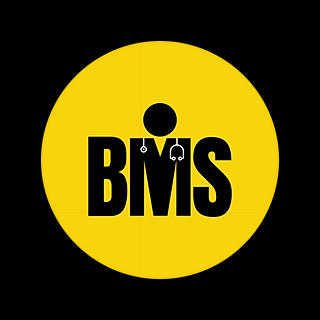Looking After Your Mental Health During Two Pandemics
- Black Medical Society (BMS)
- Jun 14, 2020
- 3 min read
"We are living in unprecedented times"
Many of us, if not all, have heard these words numerous times over the last few weeks. If you had asked me, three weeks ago, what concerned me the most, COVID-19 would have been my only answer. Things have changed immensely since then. With uncertainties surrounding COVID-19, the duration of lockdown, the recurrent racial injustices around the world and the protests fighting for change, we need to look after our mental health. These past few days have been nothing less than traumatic for many of us, feelings of increased anxiety, loneliness, panic, survival mode, powerlessness and decreased trust and hope in the future, to name a few, are common place.

The reality is we are going through two pandemics. COVID-19 and racial injustice. One is brand new but the other has been going on for hundreds of years and we have had enough.
The World Health Organisation’s department of Mental Health and Substance Use have published guidance on how people can look after your mental health during COVID. I’ve used this as a guidance to come up with 10 ways on how our community can look after our mental health. I would like to highlight that you can both look after your mental health and fight the cause – they are not mutually exclusive.
1. Connect with family and friends that you trust
Maximise technology available to you – video calls, social distancing meet ups etc.
2. Limit your exposure to social media and the news
3. Set your boundaries
Over-exposure to traumatic videos and discussions with non-allies can leave long-term detrimental effects on your wellbeing. You do not have to watch every video you see and react to everything you read.
4. Take time to relax and do things you used to enjoy
Listen to your favourite music, read your favourite books, watch your favourite shows
Take deep breaths and consider meditation (check out Headspace)
5. Stay active, get good quality sleep and eat well
Walks, fresh air and a change of environment can help lower feelings of anxiety
Poor sleep, a bad diet and stress can negatively affect your immune system and how you react to things
6. Celebrate black excellence and joy
Our lives are not defined solely by our struggles and the discrimination we face.
Continue to celebrate your achievements and of those around you
Begin or continue daily positive affirmations and continue to uplift black people
Watch videos of black people celebrating, laughing etc
7. Remember your feelings are entirely justified
Whether it’s sadness, exhaustion, anger, helplessness, hopelessness – expressing your feelings will help you control them
Writing down or painting your feelings and thoughts can also be therapeutic
8. If you are religious, seek comfort in Scriptures.
Remember there are things you can control and things you cannot. Focus on the things you can.
9. Seek counselling
In times like this, many of you would prefer to see a culturally competent black therapist, here are some links:
- Black African and Asian Therapy Network @ https://www.baatn.org.uk/
- Psychology Today @ https://www.psychologytoday.com/gb/counselling/black-british/eng/london
- Samaritans @ https://www.samaritans.org.uk/
10. Read information from trusted sources
World Health Organisation, Gov.uk, BlackLivesMatter.com (including their social media platforms), Amnesty International, etc
Being a newly qualified doctor, I have also thought a lot about the mental health of my fellow healthcare professionals. Many have experienced stressful, emotional events leading to many cases of burnout over the past few weeks, inevitably affecting how we are able to practise. Now more than ever, debriefs, a supportive working environment, Balint groups and an emphasis on resting and recharging has never been more important. I hope the positive changes and increased supportive nature among teams, will continue to be a part of the culture within the NHS.
Today marks three years since Grenfell. As we remember all those that lost their lives that night, let this be a further reminder that we need communities to come together to finally stop the injustices that continue to occur to the most vulnerable in this country. I hope that this article on how to look after your mental health during these times proves helpful and encourages discussions between yourselves and those around you.
Article written by Dr Félicité Mukeshimana, junior doctor in London/Wessex





Comments